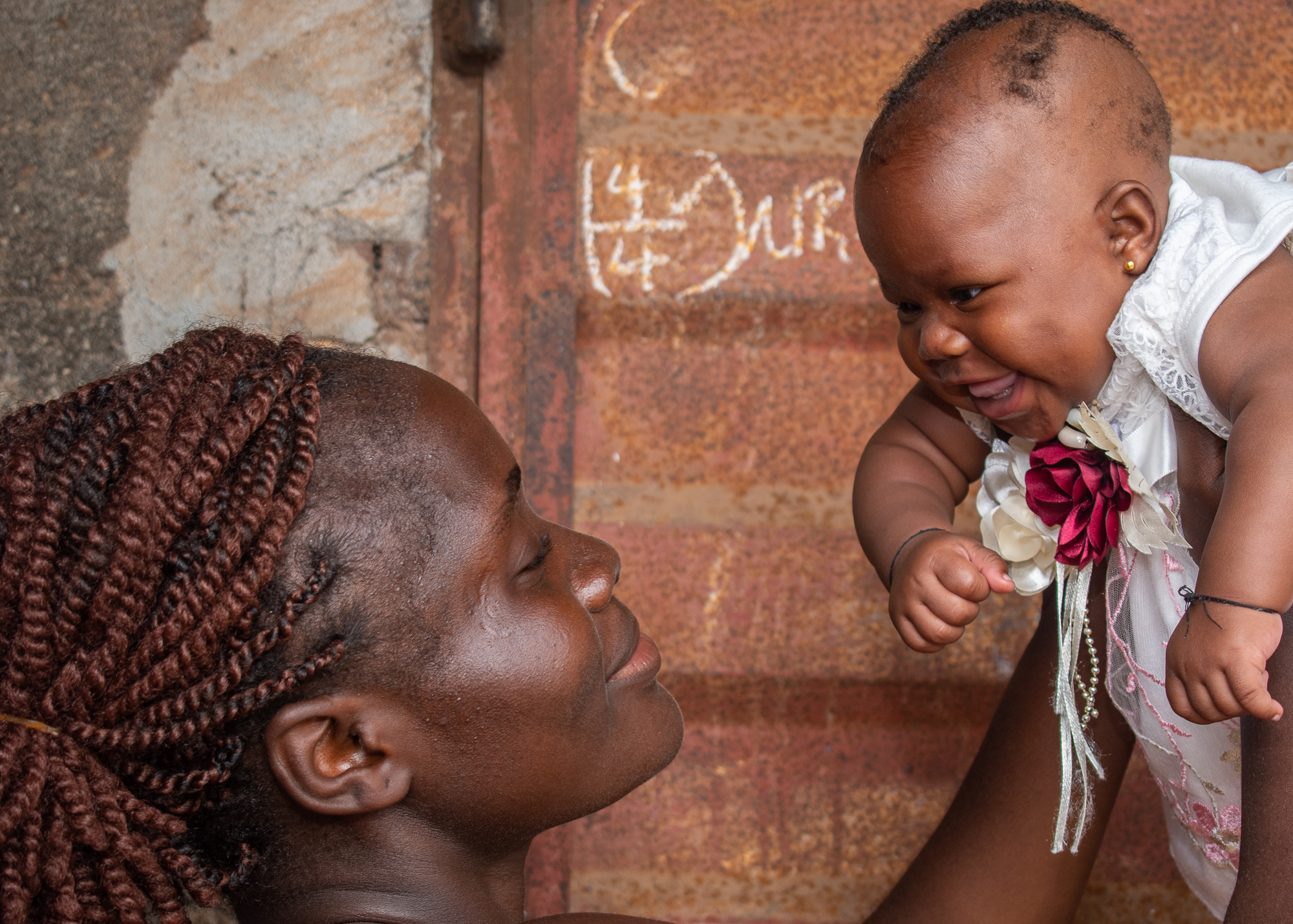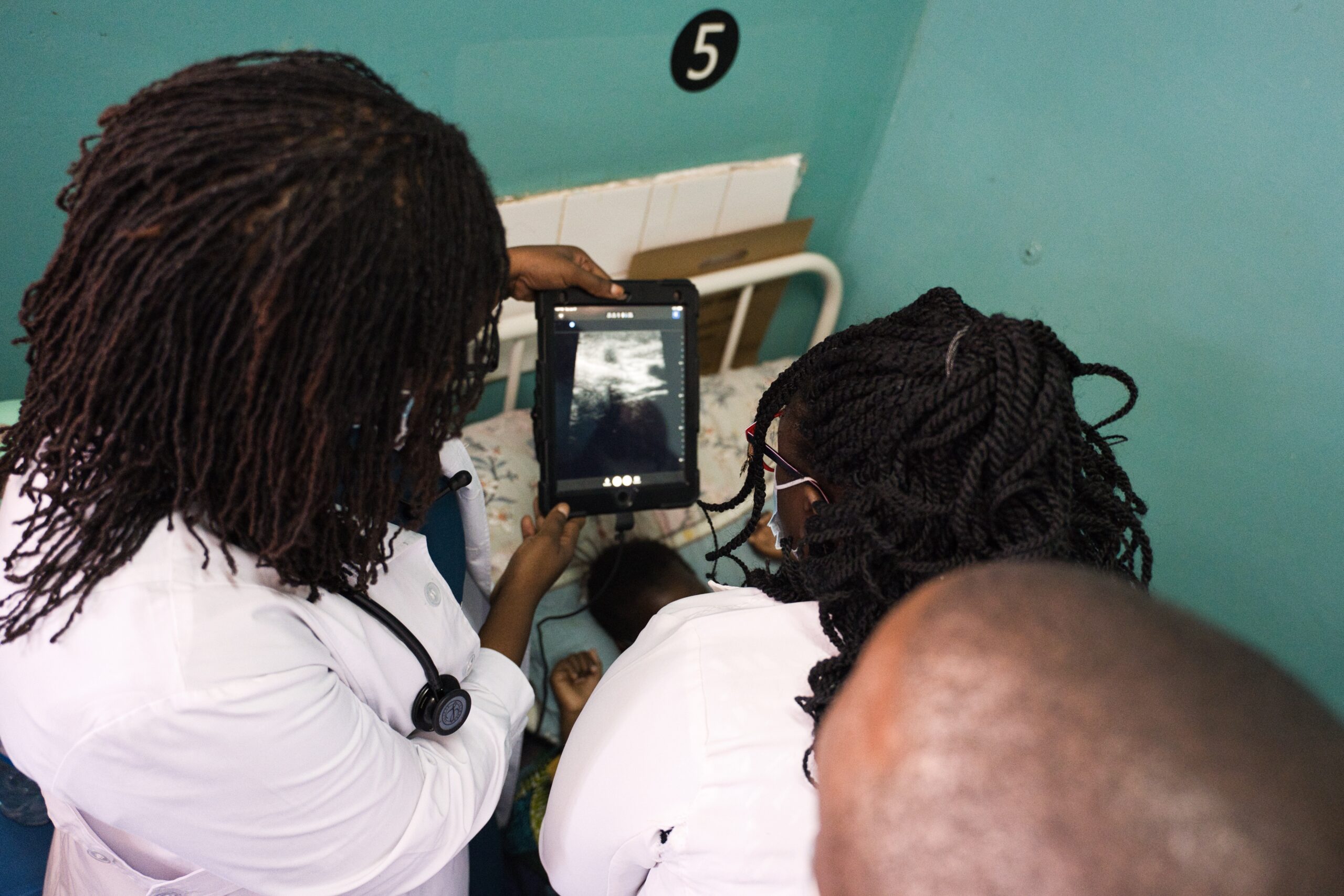
Transforming Diagnosis at the Frontlines: How Family Medicine and Technology Are Changing Lives in Zambia
Dr. Zimba Lukonde is a family medicine doctor in Zambia, trained through a partnership between the Ministry of Health, the University of Zambia (UNZA), and Seed Global Health (Seed). In this story, he shares how a small device, the point-of-care ultrasound (POCUS), is revolutionizing diagnosis and care in Zambia’s primary health care facilities. This is possible because POCUS is a small, portable device that connects to a phone or tablet, allowing a doctor to view internal organs and diagnose urgent conditions in real-time right at the patient’s bedside.
Using POCUS to make fast, life-saving diagnoses
Dr. Zimba shared a recent case at Chilenje Hospital in Lusaka, Zambia’s capital, where he works.
“A woman came in experiencing bleeding early in her pregnancy. She had been to a local clinic where she was told she was having an abortion. After being home for three days, she came to Chilenje for a second opinion. The bleeding had stopped, and she wasn’t experiencing any pain,” Dr. Zimba said.
At the time, the hospital’s traditional, cart-based ultrasound machine was not working. Dr. Zimba was called to perform a POCUS scan to confirm the diagnosis, as carrying a non-viable pregnancy posed a risk to the mother.
“I did the scan and, lo and behold, the baby was alive,” he recalled. He noted that bleeding in the first trimester is not uncommon and isn’t always worrisome. “If we had gone by the old report from the other clinic, we could have terminated a viable pregnancy, simply because the traditional ultrasound wasn’t available at that moment. The baby was delivered at term and is healthy, all thanks to POCUS.”
How Family Medicine introduced POCUS to Zambia
Before POCUS, Chilenje Hospital relied on the traditional ultrasound machine, which has limitations. Dr. Zimba explained that the ultrasound machine requires different probes for scanning different organs (e.g., heart, lungs, liver, thyroid).
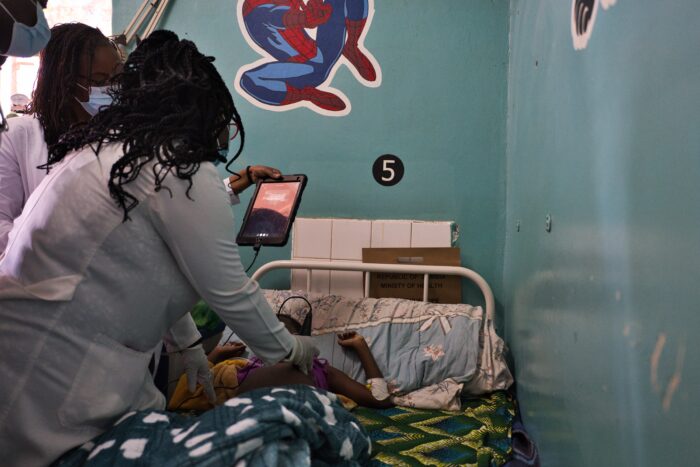
“While we could do basic obstetric scans, we couldn’t scan parts like breasts, thyroid glands, or skin,” he says. “The POCUS device can basically do all types of scans; it’s a game-changer. We can do scans the traditional machine can’t, in real-time, often without charging the patient, and without the patient having to leave the facility, wait in long queues, and come back a week later.”
POCUS was first introduced in Zambia through the family medicine training program at UNZA, championed by Dr. Matthew Haldeman, one of the first visiting faculty for the specialty at UNZA and supported by Seed. Although the hospital had an ultrasound machine, it was tucked away in the radiology department and not readily accessible when patients were critically ill, in labor, or on oxygen. As Dr. Haldeman explained, “the patient couldn’t go to the machine, and the machine couldn’t come to the patient.”
“What might sound like a small barrier had become an accepted limitation,” he said. This all changed when the handheld POCUS was introduced. “With the portable POCUS device I had purchased, I could scan patients right at the bedside in maternity, in the wards, during rounds. Soon, the family medicine residents started asking questions, wanting to learn. What began as a few informal lessons quickly grew into something much bigger.”
From the classroom to the community
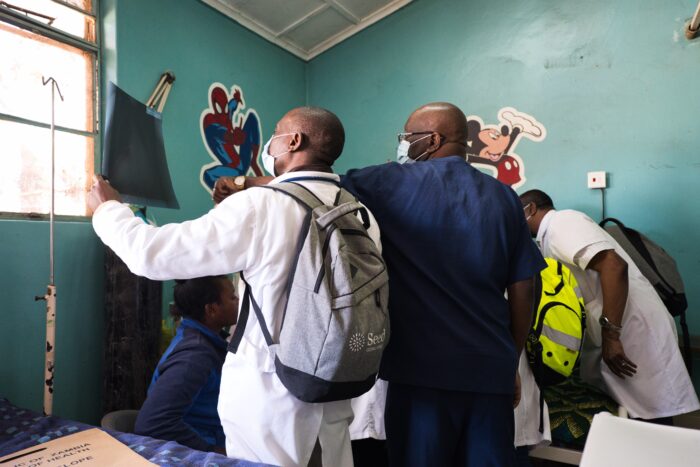
That curiosity evolved into a standardized POCUS curriculum within the family medicine residency program. Dr. Zimba attested to this life-saving training, saying he wouldn’t know the procedure if it wasn’t for the family medicine speciality.
In 2022, a study at the University Teaching Hospital in Lusaka highlighted how powerful POCUS can be in the hands of well-trained health workers. Over a year, ten family medicine residents, none with prior ultrasound experience, received hands-on POCUS training. Across 366 patient encounters, they performed 542 scans, with 95% of those scans directly influencing how patients were treated. The study showed that with the right tools and training, doctors deliver faster, safer, and more accurate care.
Furthermore, the training is already having a ripple effect, strengthening diagnostic capacity across the country as more health workers gain POCUS skills.
Last year, Dr. Zimba was invited to train health professionals for the Zambian Defence Force (air force and army). He trained up to 70 midwives, doctors, and sonographers in obstetric ultrasound across two batches. He explained that these military facilities often serve remote areas where POCUS is highly impactful, allowing health workers to provide essential obstetric scans without referring patients to distant facilities.
For health workers, access to POCUS moves care from educated guesswork to precise intervention. As Dr. Haldeman said, “POCUS doesn’t replace clinical judgment, but it brings precision where we often rely on guesswork. In low-resource settings, that precision is everything, it means we can use our limited resources wisely and give patients the right care at the right time.”
Dr. Zimba emphasized this point: “It vastly improves efficiency and decision-making as you can be more confident in your diagnosis and treatment plans.
“Take contraceptive implants, for instance,” he explained. “Sometimes, when a woman gains weight or the implant shifts, it becomes difficult to feel under the skin. Traditionally, we’d rely on touch and instinct to find it, which could mean cutting and searching blindly, hoping to locate it safely. It’s not ideal for the patient or the clinician.”
“With POCUS, it’s completely different. You can see the implant in real time, track your movement, and guide your incision precisely to where it is. It makes the procedure faster, safer, and far less stressful for everyone.”
Strengthening primary care, strengthening Zambia’s health system
More than 80% of Zambia’s patients access care at the primary level, yet diagnostic capacity here has historically been limited. POCUS has the opportunity to transform diagnosis and treatment in Zambia and Dr. Zimba argued that this is where more investment must go. “Having something like POCUS at the primary care level would be incredibly impactful because it caters to the majority of our clients, offering them high-quality, timely, and accessible care right in their community,” he said.
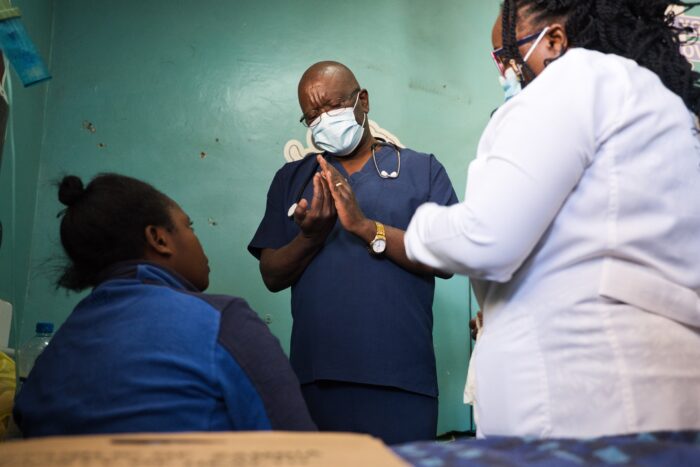
Dr. Zimba’s personal motivation and career aspirations align perfectly with the specialty’s mission. He wanted to be a doctor who knew enough to treat all kinds of illnesses. This led him to family medicine, a specialty that embodies all his curiosities and competencies. He now looks forward to a time when more family doctors are spread across the country because, as he puts it, specialized care is often inaccessible, but these gaps can be easily resolved if a skilled family physician is nearby.
Since the establishment of the family medicine specialty in 2020, Seed has continued to walk this journey with the Ministry of Health and UNZA, training the next generation of health workers to strengthen Zambia’s primary health care system.
Seed also supports the family medicine program through providing residents with access to global ultrasound courses, hands-on workshops, and the provision of POCUS devices at Chilenje and Kanyama hospitals.
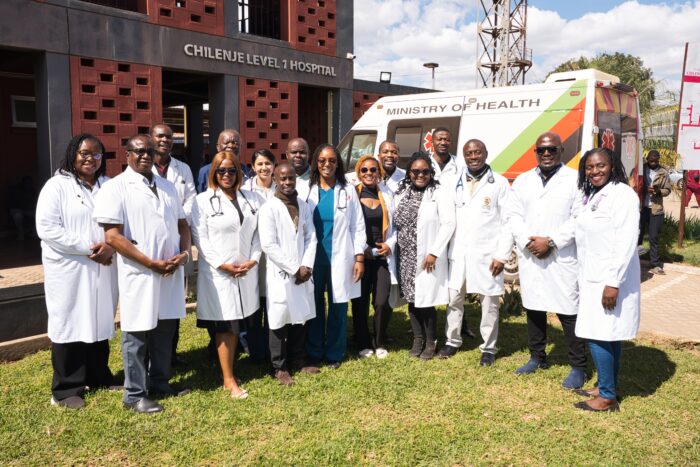
To date, five family doctors have graduated, and 35 residents are currently in training. Seeing the specialty’s impact, the Ministry of Health has since integrated family medicine into the National Human Resources for Health Training Plan, setting ambitious targets for UNZA, Copperbelt University, and Levy Mwanawasa Medical University to enrol and train new physicians.
In Zambia, family medicine is proving that when the right people have the right tools, like POCUS, lives are saved, systems strengthen, and care moves closer to those who need it most.
